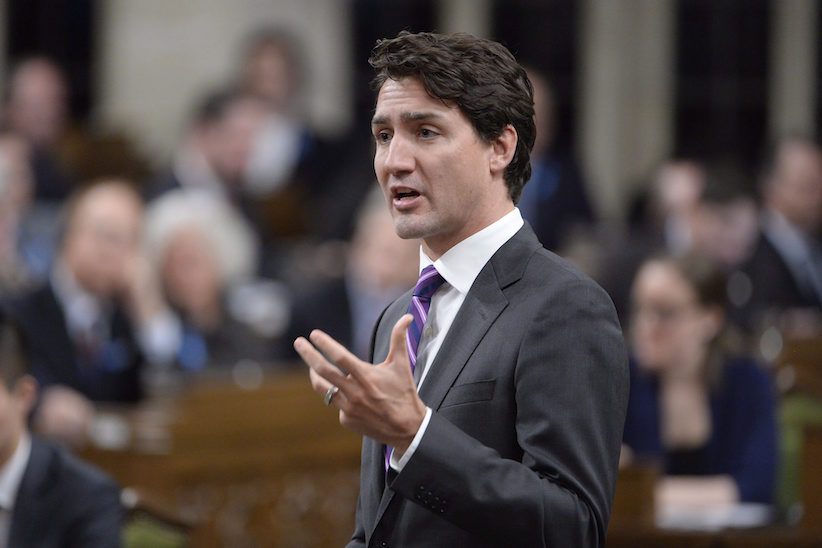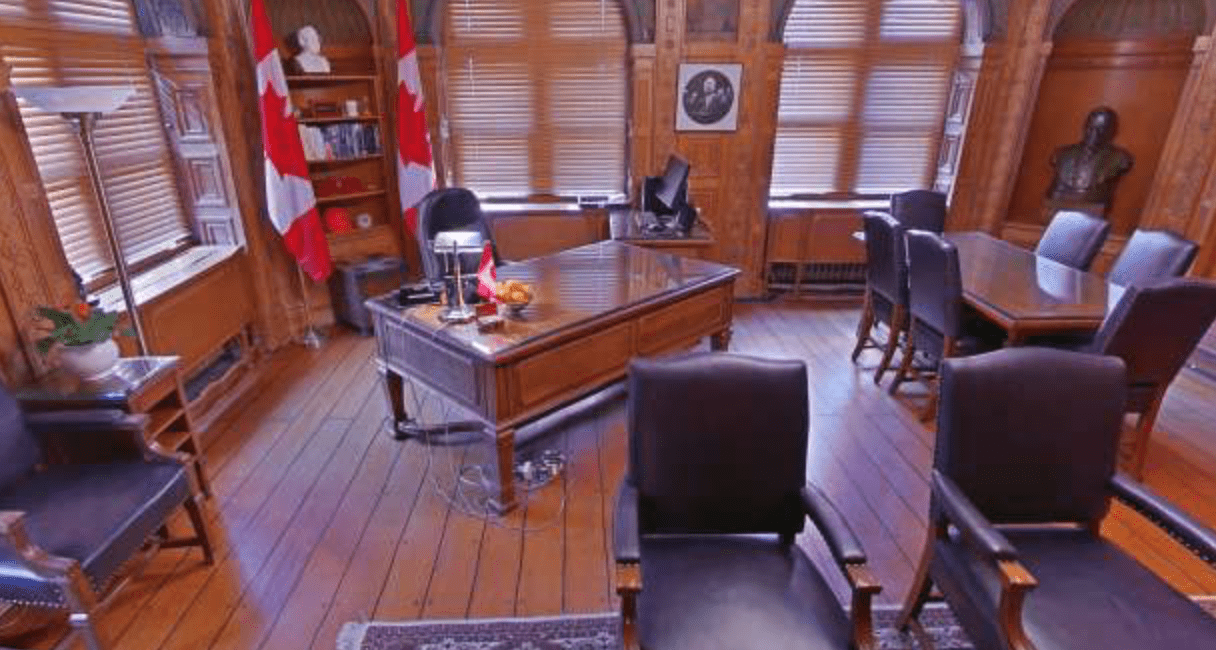Before you read this column, be warned, I'm going to present a controversial opinion that will totally shock Canada's mainstream media establishment.
Ready?
Here goes: I think Prime Minister Justin Trudeau is boring.
OK, I just literally typed that sentence and already I can hear the anguished howls of outrage …wait a minute … sorry, that's just my neighbor's stupid dog.
But anyway, my point is, the people who make up Canada's media establishment will have a hard time accepting the validity of any sentence that links Trudeau's name to the word "boring."
After all, according to conventional wisdom (i.e. the conventional wisdom as defined by the media's own echo chamber) Trudeau is the living embodiment of exciting, electrifying and exhilarating charisma.
He's one part Mick Jagger; one part Brad Pitt; one part Barack Obama.
And I guess from the media's perspective that's an understandable take since Trudeau provides journalists with a seemingly never-ending stream of visually-striking photo ops: Trudeau traipsing half-naked through the woods, Trudeau balancing a baby on his head, Trudeau doing a Bollywood dance while dressed up like an 18th century Mughal prince.
So yes, on a superficial level, the media has it right; Trudeau's image presents the thrilling aura of a celebrity rock star.
Yet, if you look past Trudeau's carefully packaged media image, if you dig a little deeper and take the time to examine his actual policy and rhetoric, you'll find our glorious leader is actually quite dull.
For instance, all of Trudeau's speeches seem to follow the exact same mundane template: First, he'll open his speech by proudly proclaiming he's a "feminist", then he'll inevitably mention his strong desire to help the "middle class and those who wish to join it", then he will utter whatever platitude is appropriate for that particular day, i.e. if it's Canada Day, he'll say "I love this country down to my bones", then he'll close his speech by once again reminding us all that he's a feminist.
So basically, when it comes to inspirational oratory, Trudeau will likely have a hard time rousing us to "fight on the beaches" or to "pay any price, bear any burden, meet any hardship" or to "have a dream."
And as far as Trudeau's policies go, let's be honest, since coming to power he hasn't exactly taken on many exciting or groundbreaking legislative initiatives.
Nor is he pushing any envelopes.
If anything, he's been playing it safe, trying to be all things to all people.
He's for exploiting the Alberta oils sands and also for phasing them out; he's for promoting international human rights and also for selling weapons to Saudi Arabia; he's for socialist egalitarianism and also for holidaying on private island resorts with capitalistic billionaires.
What I'm saying is Trudeau, unlike his childhood idol, Fidel Castro, doesn't possess anything resembling an edgy ideology.
It's more like when he had to come up with a doctrine, Trudeau simply dumped a random hodgepodge of vapid adages into a blender, pureed them into an inoffensive glob of banal ideological gruel and called the result "Sunny ways."
Even his one legislative idea that is causing some excitement his plan to legalize marijuana — is so entangled in a bureaucratic web of rules and regulations and caveats it actually risks making smoking dope seem uncool.
So yeah, when history looks back at the accomplishments of the Trudeau regime, history will likely have to stifle a yawn.
Mind you, Trudeau's overall dullness makes perfect sense when you keep in mind that, if he has a political agenda at all, it's to be a spokesman for Canada's "Laurentian elites."
In case you've never heard of it "Laurentian elites", is a term coined by pollster Darrell Bricker to describe that powerful and influential class of people who live in Central Canada's major centers and who control (or like to think they control) our country's economic and cultural levers.
Anyway, since Canada works pretty well for the Laurentian elites right now, their basic goal is to maintain the status quo.
They don't want radical ideas or revolutions or anything else that will rock the boat; so long as the Canadian economy works to their benefit, they're happy. (Sorry Alberta, that leaves you out.)
So in a way, Trudeau is giving the Laurentian elites exactly what they want a) policy that's boring; b) an uninspired populace and c) media antics that distract Canadians from thinking too much about points "a" and "b".
But in terms of politics, will Trudeau's overall policy and rhetorical dullness eventually hurt his electoral future?
Well, it might, except for one thing: both of his opponents, Conservative Party leader Andrew Scheer and NDP leader Jagmeet Singh, are even more boring.








